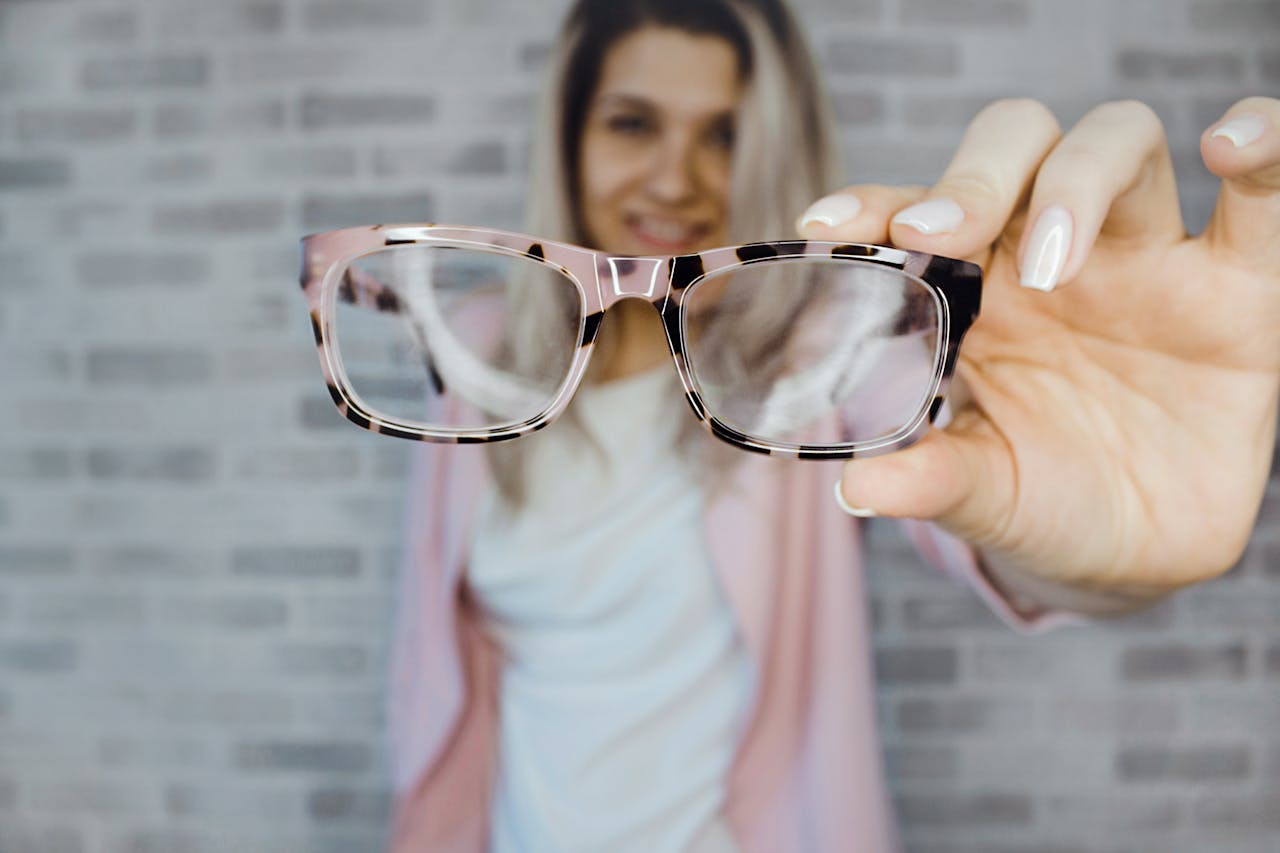DRY EYE
Dry eye may seem like a simple complaint but this condition may vary from mild irritation to the pain and glare that prevents the completion of even the most basic daily activities like driving or reading. The cause of dry eye may be complicated and multi-factorial, including poor contact lens hygiene, hormone irregularities such as pregnancy or menopause, autoimmune disease, skin diseases, degenerative joint disorders such as arthritis, and a host of environmental factors such as extended computer use, air conditioning, and ambient humidity.
During your dry eye evaluation, we carefully review these factors and thoroughly assess your eyes and lids for other conditions that may contribute to your dry eye symptoms. We will individualize your dry eye therapy including the selection of eye drops, eye ointments, nutritional supplements, prescription medications, and additional procedures. Most cases of dry eyes can be successfully managed with appropriate treatment.
GLAUCOMA
Glaucoma is a disease of the optic nerve that develops when the intraocular pressure (IOP) is higher than your optic nerve can tolerate. This generally painless condition can lead to blindness if not detected and managed appropriately. There are a number of treatments available for glaucoma including eye drops, laser treatments, and other surgical procedures.
We can identify whether you are at risk for glaucoma by reviewing your general or eye health history and performing a complete eye examination including a careful assessment of your optic nerve. Patients with a family history of glaucoma are at higher risk for the disease. Other factors such as myopia (nearsightedness), ethnicity, and age are also considered. If you have been told that you are a glaucoma suspect, then you will not necessarily go on to develop glaucoma, but may require specialized testing to evaluate your risk for progression.
If you have glaucoma, then the optometric physicians of Roosevelt Vision will help guide your treatment, following you with the utmost care. We incorporate advanced technology to determine if your condition is stable or worsening and to help you gain an understanding of your disease and treatment.

MACULAR DEGENERATION
Many of us know other people who have lost vision and visual function related to a condition known as macular degeneration. This eye disease can be diagnosed during a routine eye examination by evaluating the internal eye lining called the retina. Retinal imaging can help to monitor for the progression of changes related to macular degeneration. In the early stages, management of macular degeneration includes the use of ultraviolet protection, nutritional supplements as well as other general health recommendations such as cholesterol or blood pressure control and smoking cessation. Take home tools like the Amsler grid, which help you to monitor for subtle changes in your vision that may occur between general eye examinations.
Within the last decade, there have been developments in the treatment of macular degeneration that has given new hope to many patients. Retinal surgeons can use medications and surgical procedures can often reduce the impact of macular degeneration in some cases.
Even though macular degeneration can result in serious vision changes of the central vision, the optometric physicians at Roosevelt Vision can help to maximize vision by correcting the eyes appropriately with glasses, and recommending consultation with low vision rehabilitation specialists if this becomes necessary. We continue to monitor your eyes for other eye conditions that may reduce vision further and try to maintain the best possible vision and quality of life for our patients.
DIABETES
Diabetes is a condition that can affect many organ systems including the eye. Eye symptoms related to diabetes can range from mild to severe. These may include shifts in the eye’s refractive error or correction, dry eye symptoms to increased risk for certain types of cataracts or glaucoma. The most serious complications are typically related to diabetic retinopathy. Diabetic retinopathy can develop due to weaknesses in the blood vessel walls. If blood escapes through these openings, then hemorrhages can be observed in the eye. Other times, the leakage of other fluids can lead to swelling or edema. Diabetic retinopathy is more common in those who have poor control of their blood glucose or who have been diabetic for an extended period of time. Diabetic retinopathy does not necessarily lead to vision loss but can cause blurred vision if hemorrhages or edema develop in areas responsible for central vision.
Management of diabetes requires the collaboration of many medical disciplines. At Roosevelt Vision, we communicate with your primary care doctor or specialists and monitor your eyes for the development of any diabetic eye problems. We will recommend you to other eye specialists if treatment for your diabetic complication becomes necessary.
CATARACTS
Cataracts are caused by a clouding of the eye’s natural lens. As they develop, they can cause symptoms including glare, light sensitivity, halos, and starbursts that may impact your daily living activities. Cataracts can occur at birth; may be caused by eye injuries or surgeries; may be associated with certain health conditions; or may develop from the use of certain medications. However, most cataracts may occur due to the natural aging of the eye. Although we may diagnose a cataract during your eye examination, this does not necessarily mean that surgery is imminent. Often, you may enjoy many years of acceptable vision before removal of the cataract is required. As we monitor your cataract, we will help you to determine when surgery is needed.
Cataract surgery is a safe and successful procedure, with many patients enjoying improved vision and less dependence on glasses following surgery that may even include the implantation of a multifocal or astigmatism correcting lens. Often, our optometric physicians will work with your cataract surgeon and follow you through the postoperative period until your eye is healed.
REFRACTIVE SURGERY & LASIK
IS LASIK RIGHT FOR YOU?
If you’re seriously considering refractive surgery, you probably have some questions. The experts at Vision Source can provide the answers and care you need.
Our LASIK consultation and support services include:
Educating you about the refractive surgery process
Performing your pre-procedure testing, and evaluating whether you’re a good candidate for refractive surgery
Partnering with leading LASIK providers, selected for their records of success
Delivering your post-procedure care, and communicating regularly with the surgeon on your progress
Continually monitoring your eye health
If laser eye surgery is right for you, we’ll collaborate with your surgeon to ensure you receive the highest level of care and attention before, during, and after your procedure.

COMPUTER VISION SYNDROME
CVS refers to the eye and vision problems experienced during and/or after computer use. Symptoms of CVS include eyestrain, blurred vision, eye focusing fatigue, headache, increased light sensitivity, eye irritation, and double vision. Studies indicate that CVS affects most computer users. Many factors contribute to CVS: Computer screen type and viewing distance, lighting, environment, ergonomics, uncorrected vision problems such as near-sightedness, far-sightedness, astigmatism, presbyopia (decreased near focusing ability with age), and vision imbalance between the two eyes. As computer use is even more demanding on the eyes than reading printed material, CVS is a common problem. Children’s use of computers and other such electronic devices can create CVS symptoms also, frequently resulting in decreased learning performance.
General Recommendations for Computer Vision Syndrome
A comprehensive eye and vision examination
The use of computer eyeglasses if needed
Frequent visual rest breaks
Changes in overhead lighting and screen illumination
Improved ergonomics for the computer work environment
CHILDREN'S VISION
During the infant and toddler years, your child is developing many vision skills and is learning how to see: how to focus near and far, how to follow objects with both eyes together, and developing 3-D perception (how far away objects are from them). Vision leads to the desire to learn to crawl, walk, run, and explore. Preschoolers continue this process in developing visually guided eye-hand coordination, and fine eye-muscle movement skills needed for learning to read. Children should have their first full eye exam after age three.
School-age children need many vision skills in order to learn and participate in recreational activities. Visual skills needed include sustained focus ability up-close 10 to 13 inches, clear distance vision, ability to aim eyes together when looking side to side and near to far, plus the ability to use eye-hand coordination accurately. A full school-age eye exam should be scheduled at the end of kindergarten or within the first two to three months of first grade. Vision problems are easier to detect when children are in school rather than the summer months when the child has less visual stress. Vision problems make it harder for your children to learn, succeed, and fully participate in all that the school experience has to offer them.
Signs and Symptoms of Vision Problems in Children:
The short attention span for age
Poor eye-hand or body co-ordination
Headaches occur with up-close activities
Avoids near activities: puzzles, coloring, games, reading
Easily loses place while reading
Does not like to read, though likes to be read to
States “Reading is boring.”
Rubs eyes a lot with reading or other near activities
Turns or tilts head to use only one eye
Skips lines, reverse letters past the appropriate age
Uses finger to guide eyes while reading
Consistently performs below potential






